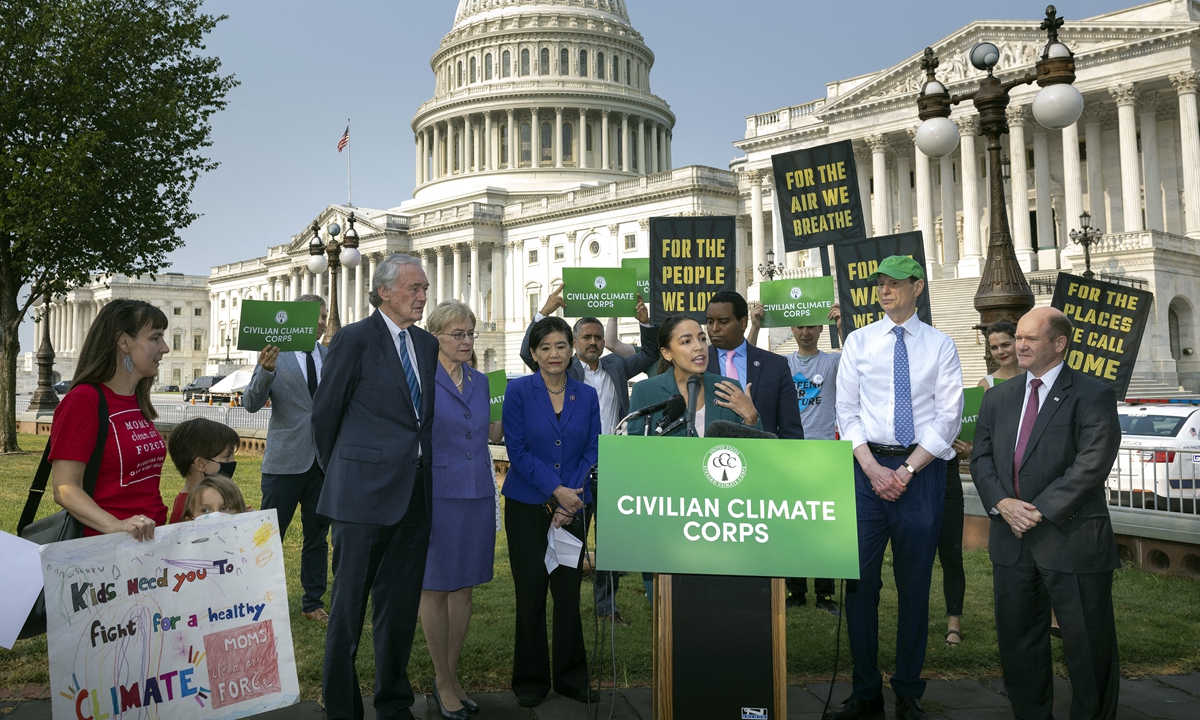
US Representative Alexandria Ocasio-Cortez (D-NY) speaks at a press conference urging the inclusion of the Civilian Climate Corps, a climate jobs program, in the budget reconciliation bill, outside of the US Capitol on July 20 in Washington DC. Photo: AFP
Publicly traded US companies would be required to disclose their greenhouse gas emissions and their approach to managing climate change risks under a proposed rule approved by Washington Monday.The measure, which now goes for public comment following a vote by the Securities and Exchange Commission (SEC), follows similar steps by regulators in Japan and Europe, and aims to standardize emissions reporting.
"Climate risks can pose significant financial risks to companies," said SEC Chair Gary Gensler, an appointee of President Joe Biden.
Gensler argued the measure would provide "reliable information about climate risks to make informed investment decisions."
Companies would be required to report emissions from their own activities, known as Scope 1, and indirect emissions from purchased energy, known as Scope 2.
Firms would also need to disclose Scope 3 emissions, which are indirectly incurred in the value chain. These include energy sold to another company if these emissions are consequential to its finances or if they have set targets for these emissions.
The rules would take effect between 2024 and 2026. Smaller firms would be exempt from the measure.
"This is a watershed moment," Allison Herren Lee, a Democratic commissioner who backed the change, said in a statement.
But Hester Peirce, the lone Republican member of the SEC and the only one of four commissioners to vote against the proposal, argued current rules sufficiently account for climate risk and that the measure distorts the regulatory agency's mission.
AFP



